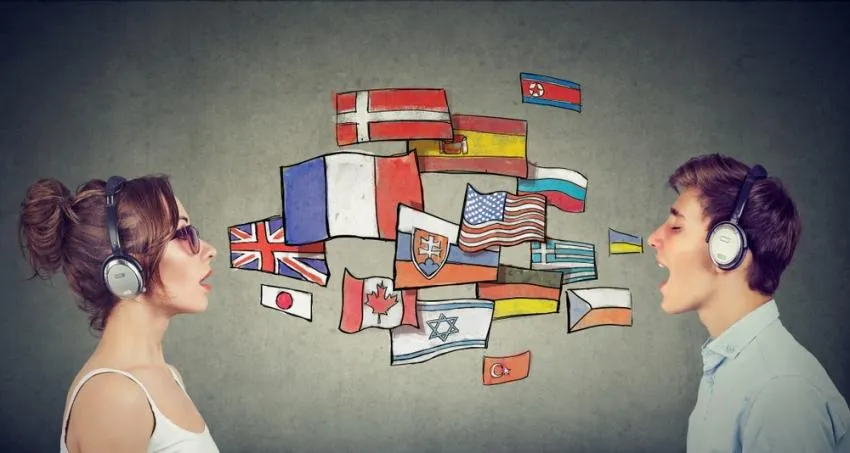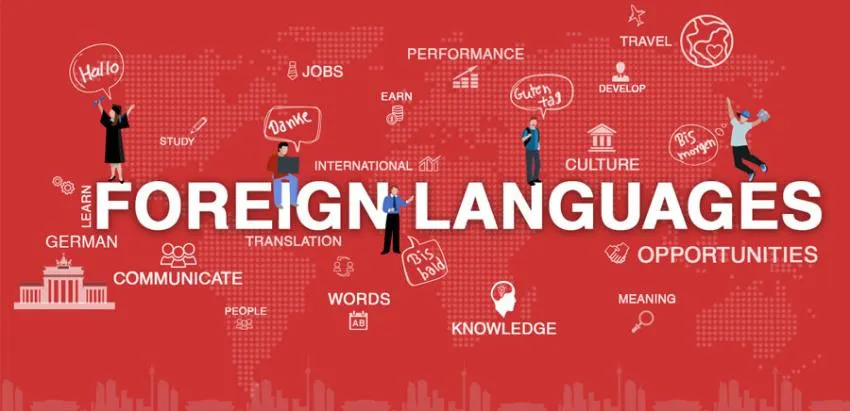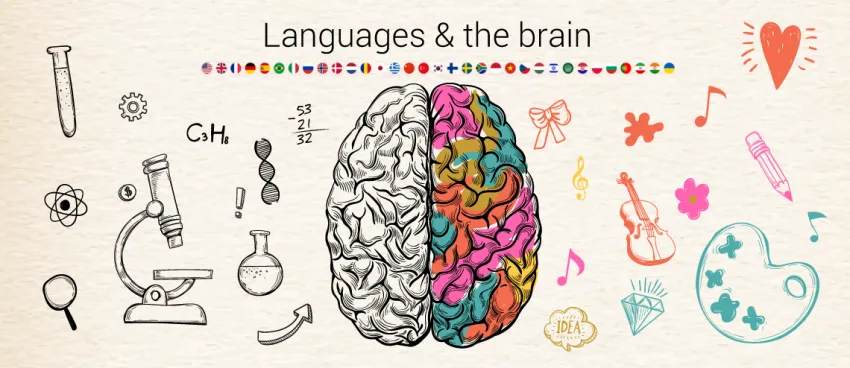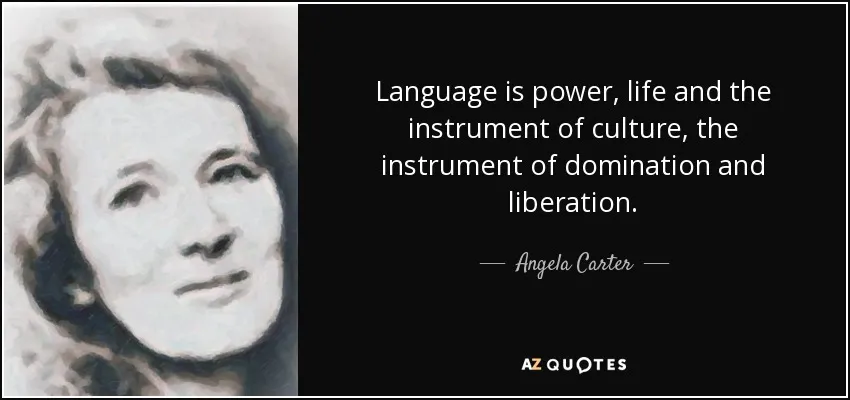Why Learning A Foreign Language Makes You Live A New Life Opening Different Horizons
"You live a new life for every language you speak. If you know only one language you live only once" - Czech proverb.
When I was a child I had many dreams, but my life didn't go as I planned, it actually took another toll. My family was given an opportunity to come to the USA and since childhood, I had to learn English.
Although in my native country, children didn't learn English in primary and secondary school, instead I took private lessons. English became really necessary so during high school, thanks to my private lessons I was the best student in English subject.
When I finished high school and had to go to college, I decided to study the English language. I knew one day I would come to the US, and studying English proved to be a wise choice.
I came to the US and language never became a problem to me, it didn't create me the same difficulties that many other emigrants had. Now I have a dream, it is to study Clinical Psychology. With this in mind, I hope to go to college soon and study Psychology and fulfill the American dream.
Many immigrants cannot speak English and find it hard to learn it. Although they have college degrees, unfortunately, they cannot exercise their profession due to the language barrier.
Learning a foreign language can prove to be a life-changing experience and it can open doors to numerous opportunities. It can integrate you into society just like a native with equal opportunities. Just like me, there are plenty of people that mastering a foreign language can change their lives for the better.

Why learning another language can change your life?
People are different from one another, but they have a lot in common which makes them similar at the same time. What joins them among one another is language. Through language, they communicate and do everyday life activities. Language is a factor that distinguishes us from nation to nation and culture to culture.
In all sciences invented by mankind and across the world, language is the soul that gives life and enables everything to exist. Literature, religion, philosophy, psychology, medicine, and any other science that benefits mankind all exist by the written and spoken language and are made available to us.
Today people cannot live without learning foreign languages, not just for work reasons, but for the social level too. Learning a foreign language is a life-changing factor, it opens doors to new opportunities and gives you a totally new way of life.
A great bonus of learning a new language is getting to know new people, we learn about their cultures and in this way we evolve, we reinvent ourselves, we develop adaptation life skills. It allows us to travel and learn about different people and cultures, their life and mentality force us to behave differently which motivates us to become more flexible, open-minded, and tolerant.
Language learning is a cause of gaining more self-confidence, it increases with the progress you make while learning. You will be able to think not just according to the language you grew up in, but according to the set of grammatical rules and ways of expression of the target language.
Language learning opens the doors to view new cultures, mentalities, and ways of living. The benefits of connecting different nations, their achievement in knowledge, all forms of arts, culture, and sciences are available to us thanks to foreign language learning and the doors of horizons it opens for us.
How learning a new language enhances your life?

It is important to note that if people decide to learn as many languages as possible, so much the better will be the communication and their relationship in the world. As we have previously said, language learning opens the door of opportunities, such as business for example, by enabling you to have a wider range of clients and customers based across the world.
Learning is a great advantage for sharing new cultures, growing communities, and understanding what matters to other people, not just ourselves, - it gives way to peace.
Those people who study a language abroad have the chance to immerse and challenge themselves in many aspects of living with the new language. Mixing with people from all over the world allows them to develop soft skills such as communication, conflict resolution, and problem-solving so much better and faster than they could not have done in their home country.
People who can master a second or a third language, have higher chances of being employed. Employers love employees with great communication skills because they are the ones that impact the bottom line. For example, UK is a country where language learning does not have high priority in schools, but this has cost the country a language deficit of £48bn (GBP) per year in lost international business opportunities.
Why is it important to learn a new language?
Learning is a life-changing experience, and it always affects our lives for the better. The benefits and consequences are far-reaching, which many people may not think of. One of these is meeting new people and making friends. It happens due to the connection it enables because humans are social beings. On the other hand, we have to overcome the feeling of fear and embarrassment when we are practicing the target language.
When we develop trust among ourselves, then a solid friendship can be built. In a work environment or social circles, there may be people who speak the language you are learning. Be curious about strangers and you will find it easy to develop relationships with people, anywhere, in all walks of life.
Today the world has become a small village thanks to globalization, so it is a necessity to learn new languages. Businesses need bilingual candidates who can communicate with colleagues in foreign countries. The business may depend and grow upon this. So learning a new language opens up more job opportunities across the world. You will climb the stairs of your career compared with colleagues who lack such skills.
Many countries face a lack of integration, which is a real problem. In most cases happens due to the language barrier. People who cannot speak another language but their own, end up being isolated and socialized only with people of communities where their language is spoken.
If you choose to set on a journey to a foreign country, then learning a new language will enrich your traveling experiences. The most spoken languages English and Spanish, are spoken in many countries of the world. This enables one to navigate easily across the world.
What are some of the benefits of learning a foreign language?

The world today has become very interconnected and interdependent, to get the best of living in this world it is required proficiency in other languages. They enable us to engage in immediate and meaningful ways, whether we are in our home city, or trying to compete and succeed in the global economy.
The benefits of learning a new language are numerous, they open the doors to life-changing opportunities. The most basic one is the connection it creates with other people, language is what enables communication. Being bilingual creates the opportunities to get in touch with a wider range of people in personal life or work environment. Knowing the language integrates you into society no matter what part of the world you are from. It will open the world literally and figuratively.
If you want to climb the stairs of your career, then learning a foreign language will give you a great advantage compared with monolingual peers. Language skills are the top eight skills required in all occupations, no matter the sector and skill level. In the US only the number of bilingual candidates doubled from 2010 and 2015. There is a demand for people who can communicate seamlessly with customers abroad and expand the business overseas, as well as doing business with foreign people at home.
There are about 6000 spoken languages in the world, and speaking at least just one other language enables access to information that without knowing the target language could not have been possible. For example, the information the internet provides can be accessed only if you are proficient in at least one of the most spoken languages in the world.
There are studies conducted that reveal learning a second language improves decision-making. Contrary to people's assumptions, when we consider deciding on a second language or third language, we distance ourselves from emotions and prejudices deeply rooted within our mother tongue. The outcome? The systematic and logical decisions are considered and supported by the facts.
With the exploration and learning of a new language and culture, we can make comparisons with our owns. It all sheds light on our own culture, in both the aspects, negative and positive ones, we could have never thought of before. You may be happy and thankful for what you have.
Does learning a new language help the brain?

As per the researches conducted by scientists in Canada, they reveal that bilingual people who are fluent in two languages show symptoms of several forms of dementia five years later considered with their counterparts who are monolingual.
Thomas Bak, at the University of Edinburgh, UK doubted if this was because language education or immigration status caused the delay since people living in Toronto where the study was conducted came from an immigrant background.
He wanted to find out if people with Alzheimer's might experience certain benefits due to bilingualism. He joined his team with Suvarna Alladi, a neurologist at Nizam's Institute of Medical Sciences (NIMSH) in Hyderabad, India, where bilingualism is everyday life.
They compared the age when dementia symptoms appeared in 650 people who were part of this study, which lasted for more than six years. Those people who spoke at least more than two languages showed symptoms of Alzheimer's more than 4 years later.
As per another research conducted by the same University of Edinburgh, the UK, Christopher Wanjek of Live Sciences writes: "Researchers found that young adults proficient in two languages performed better on attention tests and had better concentration than those who spoke only one language, irrespective of whether they had learned that second language during infancy, childhood, or their teen years."
Language learning develops critical thinking skills and improves memory. Bilingual students have a better concentration compared with those who speak only one language. They tend to ignore the distraction more effectively. Because language centers in the brain are so flexible, learning a new language develops a new area of your brain, and strengthens your ability to focus.
As per the research conducted by The International School for Advancement Studies in Trieste, Italy with seven months old babies who were exposed to two languages from birth, compared with those who were raised and exposed to only one language, the results showed that infants raised with two languages had better cognitive abilities than their monolingual counterparts.
Why is language so powerful?

As final thoughts I would like to quote Mark Wood, who is the Virginia Commonwealth University's director of School of World Studies, he says:
"Learning a second language is an expression of one's commitment to the equality and humanity of others. In a world in which governments, businesses, and nonprofit organizations conduct their affairs in diverse languages and cultures, the employment market is global, and migration from one region to another is increasingly the norm, the ability to communicate in more than one language is vital to empowering our students to do well in all aspects of 21st-century life."
I also recall the time when I was in college while I was studying the English language. I remember something during the class of translation. It is very interesting, relevant to our topic, but simple which not everybody can think of or cross their mind.
In the lecture I was reading, it was written that translators have played a role in spreading civilizations, and it is definitely true. Learning another language can open horizons you could have never thought of before.
Without the translators, nations could not have interchanged with one another, their culture, their literature, or holy scriptures such as the Bible and the Qur'an, or any other religion and all the sciences since the origin of mankind up to now.
Civilizations were spread from one nation to another thanks to those people who learned foreign languages. They are the ones who brought people the knowledge, wisdom, inventions, culture, life, dignity, and spirit of foreign countries.
The Renaissance, all the philosophical and literary works, all the modern natural and social sciences that we have today and take them for granted we could have had none of them if it weren't for those people who translated them for us. We owe to people who learned foreign languages a great deal of what our life is made of and what we have today.
Opinions and Perspectives
I love how this article really captures the transformative power of learning a new language. My own experience learning Japanese completely changed my worldview.
The Czech proverb at the beginning is so profound. Each language really does give you a new perspective on life.
While I agree language learning is valuable, I think the article romanticizes it a bit. Let's be real, it takes years of hard work and dedication.
That statistic about the UK losing £48bn yearly due to language deficits is shocking! Makes me want to brush up on my French.
I can totally relate to the part about overcoming fear when practicing. I still get nervous speaking Spanish with native speakers sometimes.
The research about bilingualism delaying dementia is fascinating. Another great reason to learn a new language!
You're right about the work required, but I think that's what makes it so rewarding. Nothing worth having comes easy.
The part about making better decisions in a second language really resonates with me. I definitely think more logically when using my second language.
I found it interesting how the article connects language learning to cultural understanding. It's so true that you can't really separate the two.
That study with seven-month-old babies is mind-blowing. I wish I'd been raised bilingual!
We often take translation for granted, but the article makes a great point about how crucial it's been for spreading knowledge across cultures.
The comparison to living multiple lives through different languages is beautiful. Each language really does show you a different way of seeing the world.
I work in international business and can confirm that language skills are absolutely crucial. Most of our best opportunities come from being able to communicate across borders.



